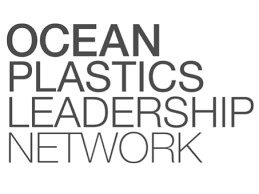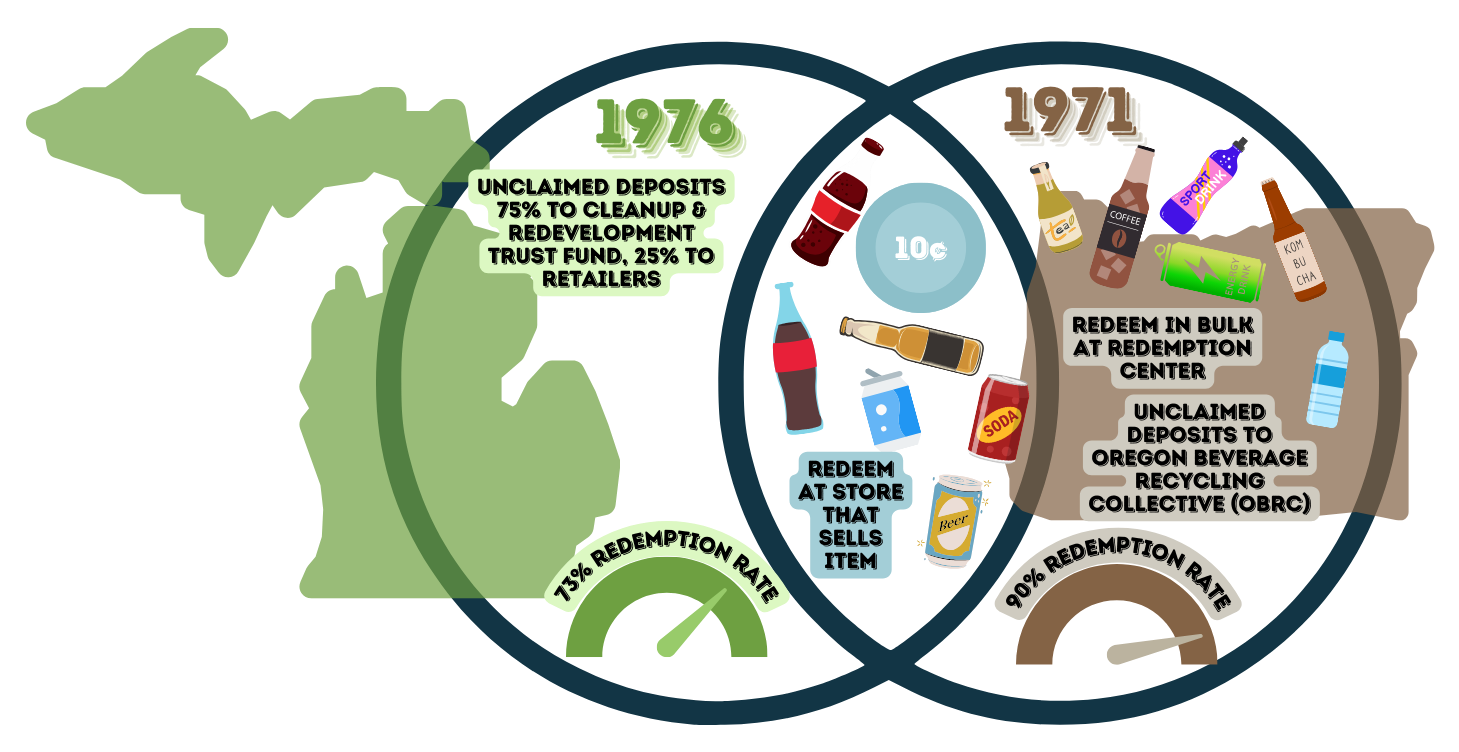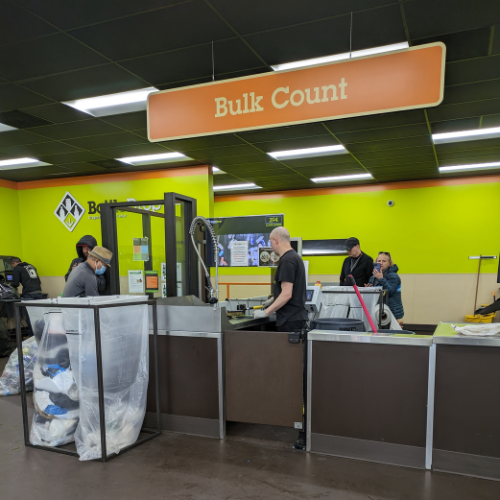Mobilizing for Action on Extended Producer Responsibility

In mid-May, I joined a technical expedition of Vancouver, British Columbia and Portland, Oregon recycling systems with more than 30 other delegates representing national and international brands, state legislatures, and nonprofit organizations from across the country. The Ocean Plastic Leadership Network expedition focused on highlighting extended producer responsibility (EPR) and deposit refund systems (DRS) and enabling conversation among a variety of stakeholders to support harmonization of developing programs.
The trip was fast-paced and fascinating. While my focus was on EPR systems, EPR and DRS are often discussed together as high-performing programs benefit from both systems. I couldn't help but compare Pacific Northwest DRS with Michigan's program. Once highly regarded as the most successful bottle deposit law in the country, Michigan's capture rate of covered containers has fallen from 95% in 2013 to 73% in 2023. The State of Oregon, however, which boasts the oldest container deposit law in the country, has surpassed Michigan's success by capturing more than 90% of covered containers in 2023.
"EPR and DRS are often discussed together, as high-performing programs benefit from both systems."

In 2017, Oregon increased the refund value of covered containers from $.05 to $.10. And, the State's deposit law includes 88% of all beverages sold, while Michigan's only covers 55% of all beverages sold in the state. The Oregon Beverage Recycling Cooperative (ORBC) invests its escheats and more in a return system that makes it easy for residents to participate. The most significant advancement is, of course, the bulk drop-off. Residents can purchase bags and personalized bar codes that allow them to drop off bags of bottles and cans for bulk processing. Refunds are loaded into an online account for easy access by the redeemer. This system also makes it easy for small retailers to participate in much the same way. Using AI, bottles and cans are easily counted in bulk and consolidated, in some cases, onsite at depot stations also outfitted with reverse vending machines that serve an area and relieve adjacent retailers of the burden.
What works for Oregon, though, may not work here. For a number of reasons, Michigan's deposit law has not changed in 40+ years, and therefore has not adapted to the changing landscape of consumption and materials management. We have to think beyond the Bottle Bill. What is growing clearer to me is that, if Michigan is to get serious about meeting its materials management goals and diverting more materials to manufacturing, we are going to have to significantly amp up investment in our recycling system and services.
Renew Funding, won in 2018, underwrites the investment in recycling happening now and will support the upcoming county material management planning process, which will bring focus to system gaps and needs, setting Michigan up for growth. But where does the funding come from to support needed investment in services and processing? Municipalities are already cash-strapped and managing a variety of materials and environmental challenges. We believe it's time for the producers to step into their responsibility.

"If Michigan is to get serious about meeting its materials management goals, we are going to have to significantly amp up investment in our recycling system and services."
So, the Michigan Recycling Coalition is setting its sights on extended producer responsibility (EPR). EPR is an environmental policy that holds producers financially responsible for the end-of-life management of their products and packaging. In Michigan, it could mean that producers assure that all Michigan residents have convenient and efficient recycling services at the curb and drop-off, effectively leveling up recycling opportunities for everyone and relieving local governments and taxpayers of recycling costs. EPR would reduce the financial burden of recycling for local governments and rate payers, encourage more sustainably designed products and packaging, provide recycled materials back to producers to make new products, and support the achievement of important sustainability goals for everyone across the supply chain.
Interested in learning more? Check out our website, circularmichigan.org, to learn about extended producer responsibility and what it means for you. If we are to bring EPR to Michigan, we're going to need your help! Learn more about how you, your local government, or your organization can support here. If you think your community can pass a resolution in support of EPR, now is the time to get that started.
